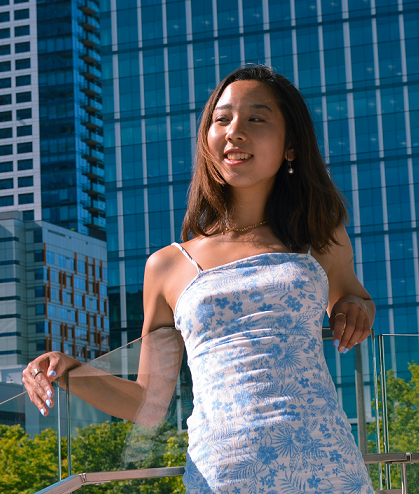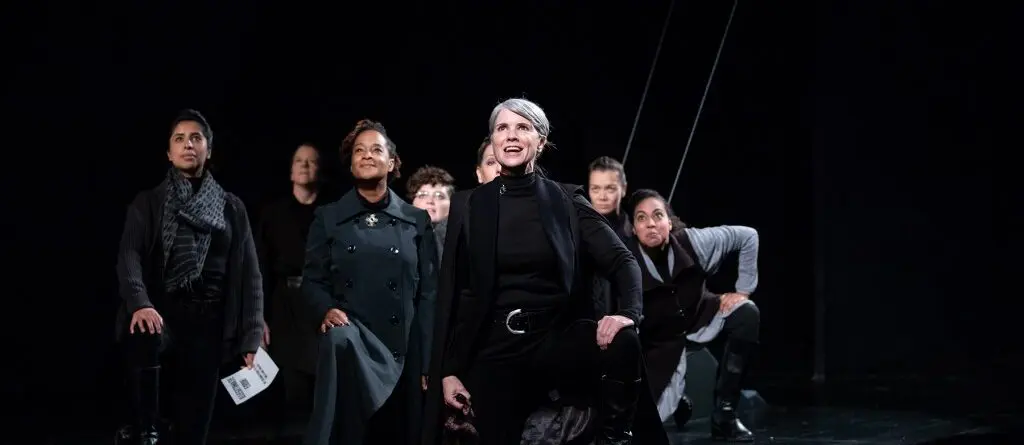Zooming in on the Future of Theater
By Linda Yan
Published July 28, 2021
With a pandemic wreaking havoc in every imaginable aspect of our lives, these past eighteen months have been tumultuous times for many of us. As the pandemic progressed, the cracks in our society began to widen and break as racial and social injustices were shoved into the light. This has led to a mass reckoning of what it means to incorporate equity and empathy into the things we’ve always done as a society.
Now, as vaccination rates continue to rise and Washington state takes ever more aggressive steps towards reopening, many theater companies are slowly returning to in-person theater. Unfortunately, as the pandemic isn’t quite over yet and the vaccination of kids 11 years old and younger remains to be done, many COVID-19 protocols are still in place for this summer’s youth theater. For instance, the Seattle Children’s Theater has decided to offer a mix of both in-person and virtual summer camps, as well as implement social distancing and masking guidelines, for the summer of 2021.
As the Digital Storytelling Intern for Penguin Productions, a Seattle-based youth-focused theater company, I have been working to help create face-to-face experiences after over a year of Zoom theater. The forefront of my work includes ensuring the comfort of all participants. In order to accomplish this, we need to “…practice consent conversations – what do our scene partners, our colleagues, our audience members feel comfortable with? ” asks Shana Bestock, Penguin Productions’ Producing Artistic Director, during a brief conversation I had with her.
While consent is typically discussed in the context of the #MeToo movement, it is an incredibly important routine to incorporate into any kind of relationship as it facilitates a mutual respect that makes room for more equitable and empathetic spaces.
Although Zoom theater is something many are looking forward to leaving behind, many others are also considering the potential for it to become a staple in the theater ecosystem. From creative experiments to pieces that blur the line between protest and theater, some performing artists are embracing this possibility.
One of the great things about creating virtual theater is that a lot of the challenges that come with devising live theater, such as geographic differences, hierarchical demands, and lack of rehearsing and performing spaces, are frequently lessened, which allows for a lot more creative freedom for arts workers. This also helps augment arts accessibility, especially for those who have traditionally been excluded from the arts. By eliminating access barriers including cost and geography, we can begin to build a theater landscape that is open to all. Many, myself included, hope that this could eventually lead to systematic changes that results in theater spaces with greater BIPOC and LGBTQ+ representation without tokenizing them.
Another aspect of theater that many people are hoping to forgo are the frequently problematic depictions in many popular and classic pieces. To help further inclusiveness in theater, we need to recognize the frequently derogatory nature of many of our most celebrated and timeless plays, as well as the systemic discrimination and exclusion that exists in our current art spheres. Many local theaters, such as Seattle Shakespeare Company with their all-female rendition of Richard III, are currently experimenting and working towards this. Striking the balance between honoring tradition and creating a production appropriate for modern times is most certainly challenging, but, as said by Sadie Gingold, a Seattle-based youth actor and playwright, “There are always ways to explore those problems in the art you’re making instead of not making art.”
We are currently living in a unique time where just about everything is being re-imagined and re-invented. Theater is no exception. As productions evolve to fit into a post-pandemic world, we cannot just “wait and see” what possibilities it brings. Rather, we need to recognize the frequently derogatory nature of many of our most celebrated and timeless plays, as well as the systemic discrimination and exclusion that exists in our current art spheres. Perhaps this means directing a play through a new lens. Perhaps this means building a new theater ecosystem with both in-person and virtual shows. As said by philosopher Abraham Josh Heschel, “To be or not to be is not the question. The vital question is: how to be.”
***
This article was written on special assignment for ArtsFund through the TeenTix Press Corps, a program that promotes critical thinking, communication and information literacy through criticism and journalism practice for teens. TeenTix is a youth empowerment and arts access nonprofit.

Linda Yan is a spontaneous and excited arts worker who has had the amazing luck of spending most of her life so far in the Pacific Northwest. She is an incoming student for Northeastern University’s class of 2025 where she plans on majoring in honors bioengineering. Passionate about environmental and climate justice, she hopes to be able to use her knowledge, experience, and skills to help build a world where living sustainably is accessible to all. Accomplished and passionate in many areas, Linda has worked with many organizations throughout the STEAM (science, technology, engineering, arts, mathematics) spectrum include The Seattle Times, The Institute for Systems Biology, TeenTix, and The Borgen Project. In her free time, she enjoys backpacking, watching Studio Ghibli films, painting, and having deep philosophical conversations with her friends.
***
Header image: Seattle Shakespeare Company, cast of Richard III, photo by HMMM Productions, courtesy of Seattle Shakespeare Company.
